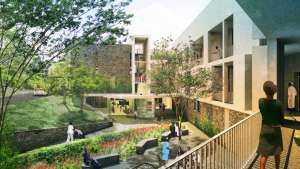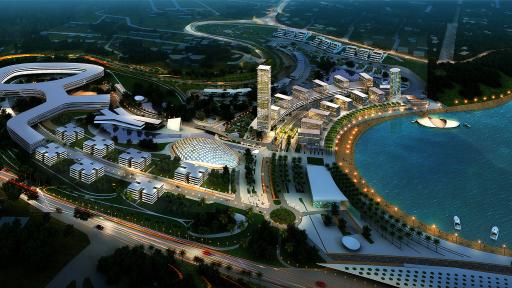“For us, design generates the appropriate solution to the problems of urban planning we have in the Ivory Coast,” says architect Issa Diabaté. At Design Indaba Conference 2014, Diabaté shared his experience of being an architect in West Africa: highlighting the problems facing the area as well as the necessary solutions for 21st century urban planning.
After completing a Masters in Architecture at Yale University in the United States, Diabaté decided to return to the Ivory Coast and his hometown Abidjan, where he co-founded Koffi & Diabaté Architects with Guillaume Koffi. The practice dedicates itself to finding solutions to the issues of rapid population growth and its effect on urban planning.
For Diabaté, the architectural issue facing the Ivory Coast is the lack of vision for urban planning. “The consequence of this is the inability to control and monitor urban spaces,” he explains. The population of Abidjan has grown from 1.2 million in 1979 to 6.5 million in 2014. For Diabaté, this stat is problematic as the country still lives on 1970s urban planning, placing pressure on the city and its inhabitants.
“In such a situation the city is dictated by spontaneous growth which reflects the population’s immediate need to be accommodated,” says Diabaté. His solution is to shift from being just an architect to an architect-as-developer in order to be part of every process that creates a city – from idea to built solution.
For me, as an architect, it’s important to reclaim control over our cities. As government is not actively solving the issues emerging from a lack of urban planning, architects need to step in and be proactive.
Diabaté goes on to describe Les Résidences Chocolat, Acoco and building Abidjan’s first school of architecture, which are some of the projects Koffi & Diabaté Architects have undertaken to address population growth and urban planning in the Ivory Coast.
Les Résidences Chocolat is a luxury real estate development which saw Koffi & Diabaté make the initial shift from architects to developers. Some people have questioned a luxury development in an impoverished area, to which Diabaté responds that often high-end design can result in a change on a wider scale: “We need to create new standards of living to foster a certain emulation in our population.”
Working alongside the Ivory Coast government, Koffi & Diabaté’s project Acoco seeks to rehabilitate the lagoon bay in Abidjan. Over the last 10 years, the area has experienced a significant deterioration due to landfills and sewage as the city’s population has grown. The project will realise a new draining system and create a boardwalk around the lagoon bay to reconnect the city’s dwellers with waterfronts.
Currently Diabaté is working on creating Abidjan’s first school of architecture. As the country only has 200 architects for a population of 26 million, Diabaté hopes the school will enable the country to build a new generation of architects and create a platform for exchange between countries and cultures.
"I believe that independence, innovation, volunteer work and personal investment are the key ingredients that must characterise African architecture of tomorrow,” he concludes.













